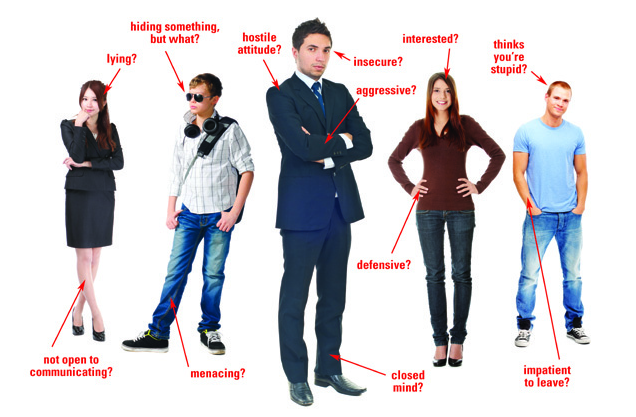Want to know how to read people like a book? Look no further than the world of body language! Learning how to read and use body language can be a game-changer in both your personal and professional life.
In this article, we’ll give you the inside scoop on some of the best body language hacks to help you connect with others, command respect, and achieve your goals. So sit up straight, uncross those arms, and get ready to learn how to speak volumes without ever saying a word!
 Rubbing your hands
Rubbing your hands
Rubbing your hands together is not just a sign of excitement or anticipation; it’s a signal that you’re ready to get to work. Think of it as a physical manifestation of the proverbial saying “roll up your sleeves.” By rubbing your hands together, you’re preparing your body and mind for action!
Plus, it’s a physical manifestation of the excitement you’re feeling inside. It’s like your body is so amped up that it needs to release that energy somehow, and what better way than through a good ol’ fashioned hand rub? But be careful not to overdo it! Too much hand-rubbing could come across as nervousness or anxiety.
Excessive blinking
If you notice someone blinking excessively after they’ve finished telling you something, it could be a sign that they’ve just told a lie. This phenomenon is known as “rebound blinking,” and it’s a common indicator of deception.
Excessive blinking is a common indicator of deception
When we lie, our bodies often react in subtle ways that can give us away. Rebound blinking is one such way. It’s a natural response to the stress and discomfort that comes with telling a lie. Essentially, the liar blinks excessively after they’ve finished speaking as a way of relieving the tension and anxiety they’re feeling.
 Tugging the ear
Tugging the ear
Have you ever caught yourself absentmindedly touching or tugging at your ear during a conversation? Well, it turns out that this simple action could be sending a powerful message about your state of mind. Touching or tugging at your ear can indicate indecisiveness or uncertainty.
It’s a common subconscious gesture that people make when they’re trying to make a decision or evaluate different options. In some cases, ear-touching can also indicate nervousness or anxiety. It’s a way of self-soothing and can help to calm the mind and reduce stress levels.
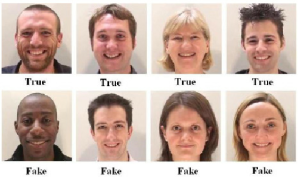 Fake smiles
Fake smiles
Ah, the power of a smile! It’s often said that a smile can light up a room and make everything better. But did you know that not all smiles are created equal? According to body language experts, a genuine smile engages the whole face, including the eyes, while a fake smile only involves the lips.
This is because a genuine smile is a natural and spontaneous expression of happiness, while a fake smile is a deliberate and conscious effort to appear friendly or approachable.
So, how can you tell the difference between a genuine and a fake smile? Look at the eyes! A genuine smile will cause the eyes to crinkle at the corners and produce a “sparkle” or twinkle, while a fake smile will leave the eyes looking dull and lifeless.
 Crossed arms
Crossed arms
Crossing arms during a conversation is one of those nonverbal cues that we’ve all heard about, but what does it really mean?
According to body language experts, crossing your arms can signify self-protection and a lack of openness. This is because when we cross our arms, we create a physical barrier between ourselves and the person we’re talking to.
A strong, firm handshake is typically seen as a sign of confidence, assertiveness, and reliability
It’s almost like we’re putting up a wall to protect ourselves from whatever they say or do. So, if you’re looking to make a good impression and connect with someone, try to keep your arms uncrossed and your body language open. By doing so, you’ll come across as more approachable and welcoming!
Breaking eye contact
If you ever find yourself in a conversation with someone, and you notice they keep breaking eye contact, you may be guilty of committing an unintentional insult. Or maybe they just find you so boring that they can’t bear to look at you for too long. Either way, it’s never a good feeling to have someone break eye contact with you.
it’s never a good feeling to have someone break eye contact with you
In all seriousness, though, breaking eye contact can be a powerful way of communicating disapproval, disinterest, or even anger. It’s a way of saying, “I’m not listening to you anymore, and I don’t want to engage with you.” On the other hand, maintaining eye contact can communicate respect, interest, and even attraction.
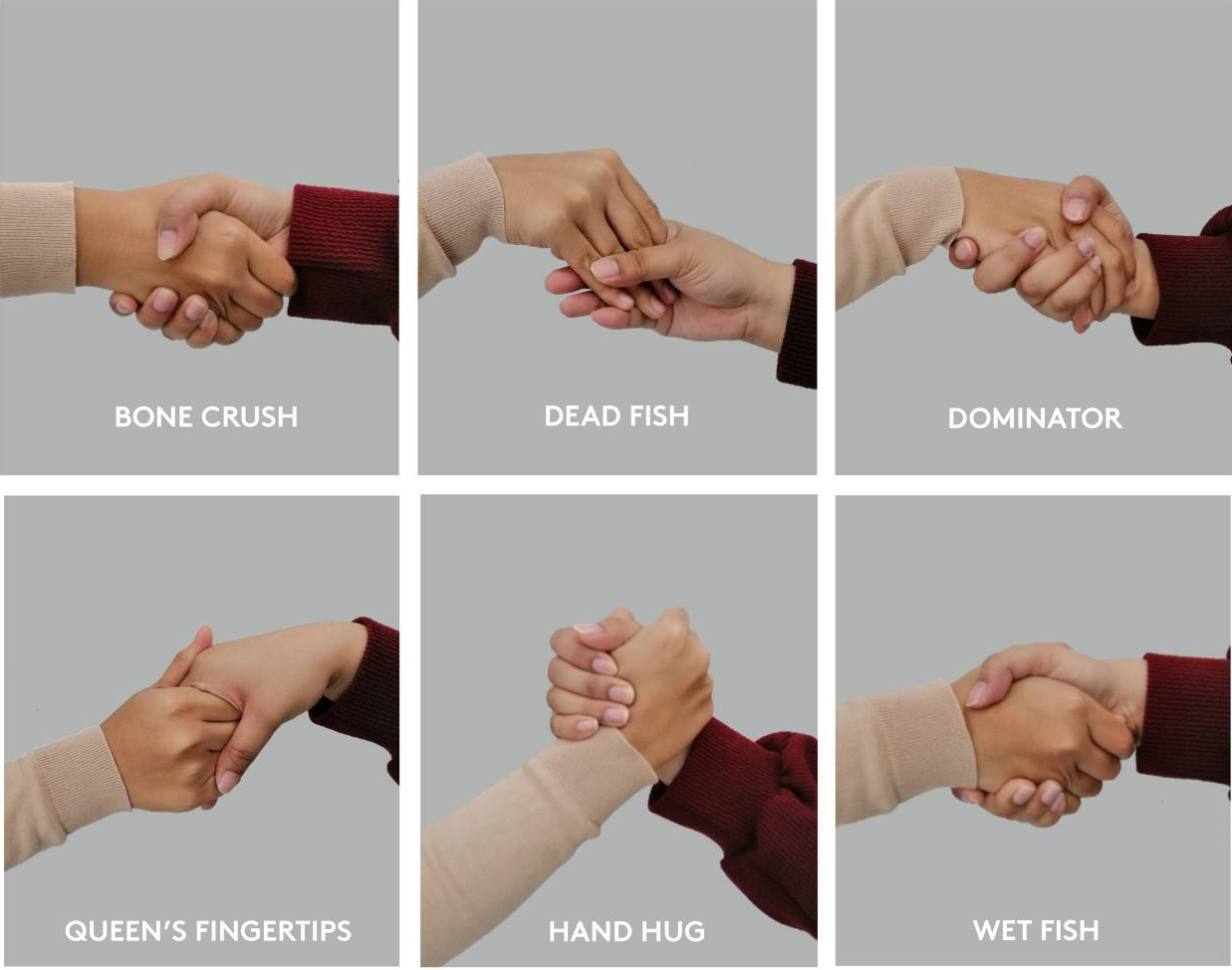
Weak handshake
A weak handshake can actually be a sign of unreliability or disrespect. According to body language experts, the strength of a person’s handshake can say a lot about their character and personality.
A strong, firm handshake is typically seen as a sign of confidence, assertiveness, and reliability. On the other hand, a weak or limp handshake can be interpreted as a lack of respect or interest in the other person. It can also suggest a lack of confidence or assertiveness, which may not inspire confidence in others.
Crossing legs
If you notice someone crossing their leg towards you during a conversation, it could be a sign that they trust and like you. When we cross our legs towards someone, we’re signaling that we feel comfortable and at ease with them.
when we cross our legs away from someone, it can indicate that we’re not as comfortable or at ease with them
It’s a way of showing that we’re open to their ideas and opinions and that we trust them. But, when we cross our legs away from someone, it can indicate that we’re not as comfortable or at ease with them. It’s a way of creating distance and signaling that we’re not entirely on the same page.
 Slouching
Slouching
Body language experts suggest that slouching or shrinking can be a sign of insecurity or low self-esteem.
When we’re feeling anxious or unmotivated, it’s natural to want to curl up or shrink away from the world. This can make us look smaller or less confident, which can further reinforce these negative emotions.
If you notice a friend or colleague slouching or shrinking their shoulders, try to offer them some words of encouragement or simply ask if there’s anything you can do to help.
Excessive nodding
Have you ever found yourself nodding along to someone’s conversation, even though you’ve completely lost interest? It’s a common scenario, and one that can be easily detected through body language. Excessive nodding can be a sign that a person has lost interest in the conversation or topic, but is trying to be polite and avoid appearing rude.
Excessive nodding can be a sign that a person has lost interest in the conversation or topic, but is trying to be polite and avoid appearing rude
What can you do if you find yourself nodding excessively? One strategy is to actively listen and engage with the conversation. Ask questions, offer your own opinion, and show genuine interest in what the other person is saying. This will not only keep you engaged, but also signal to the other person that you’re truly interested in what they have to say.
Tilted heads
Tilting one’s head to the side is a common body language gesture that can often be seen as a sign of sympathy or empathy. But why do we tilt our heads when we’re feeling sympathetic? One theory is that it’s an instinctual response that dates back to our early ancestors.
When a person tilts their head to the side, it exposes the neck and vulnerable areas of the body, which is a sign of submission and non-aggression. This may have helped to diffuse potentially dangerous situations and build trust between individuals.
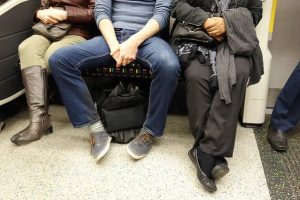 Sitting with legs wide open
Sitting with legs wide open
Ah, the infamous “manspread.” We’ve all seen it before – a person sitting with their legs open and apart, taking up more space than necessary. But why do some people sit like this? One reason is that it can make a person feel more secure in their surroundings. By taking up more space, they’re creating a physical barrier between themselves and the world around them.
This can be especially true in crowded or uncomfortable environments, where people might feel the need to protect themselves. Additionally, sitting with one’s legs open can be seen as a way of asserting dominance or confidence. It’s a subtle way of saying, “I’m here, and I’m not afraid to take up space.”
Lowering of the eyes
Have you ever noticed how when you’re in a heated argument, the other person suddenly looks down at their feet? Or maybe you’ve done it yourself? That’s because lowering your gaze is a natural response to feelings of fear, guilt, or submission. It’s a way of avoiding confrontation and indicating that you’re not a threat.
Lowering the eyes is a way of avoiding confrontation and indicating that you’re not a threat
Think about it, when you’re scared, what do you do? You avert your eyes and look away. When you’re feeling guilty, you can’t even bring yourself to make eye contact because you know you’re in the wrong. And when you’re feeling submissive, you lower your gaze as a sign of respect and deference to the other person.
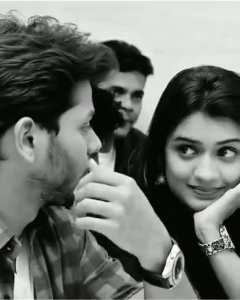 Dilated pupils
Dilated pupils
When we’re attracted to someone or something, our pupils naturally dilate. It’s a physiological response that occurs when we’re aroused or excited, and it can be a sign of our subconscious desire.
The dilation of our pupils is controlled by the autonomic nervous system, which regulates involuntary bodily functions like breathing, heart rate, and digestion. When we experience a strong emotional response, such as fear or attraction, our autonomic nervous system can trigger the dilation of our pupils.
Source: Travel Gazette

